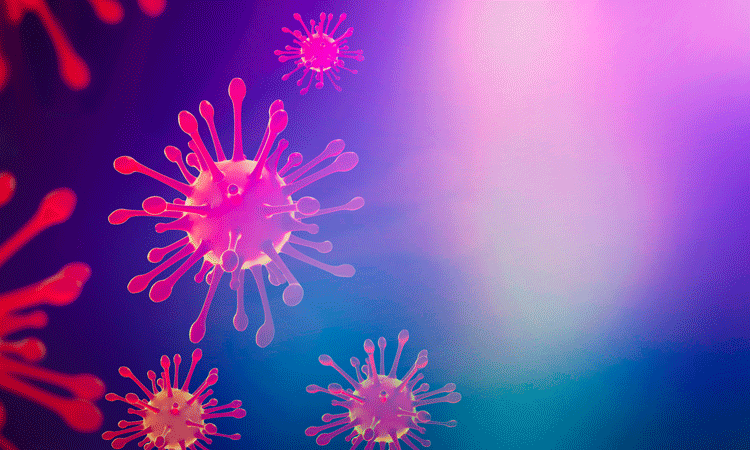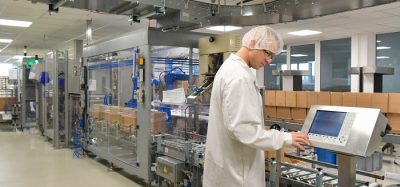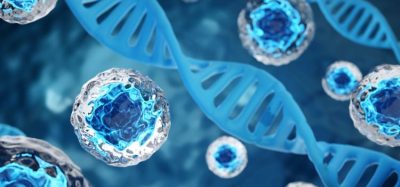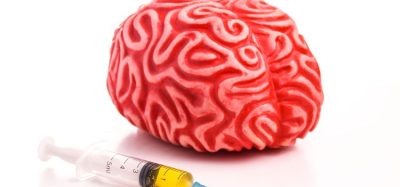COVID-19: a wakeup call?
Posted: 24 April 2020 | Dave Elder (JPAG Member and David P Elder Consultancy) | No comments yet
It appears the world was unprepared for a novel coronavirus, despite historical precedents. Dave Elder provides some insight on the disease and what the pharmaceutical community is doing to tackle the pandemic.


GLOBALISATION inevitably leads to more rapid spread of disease, which will in turn facilitate global pandemics.1 Infectious diseases have always followed the main global trading networks. The Black Death was disseminated by European merchant traders throughout the 17th century and global conflict and the rapid movement of many thousands of soldiers contributed to the last great pandemic, Spanish influenza, in 1918/1919.2 In recent times, air travel has been responsible for the rapid spread of several strains of avian flu.3
More recently, there have been global epidemics caused by corona viruses – ie, SARS-CoV and MERS-CoV. Woolhouse4 highlighted that there may be significant underreporting of these emerging global infectious diseases from other less developed regions in the world. Many emerging pathogenic organisms have a wide range of potential hosts, including mammals and birds. Research indicates that MERS-CoV, SARS-CoV, as well as the newly emerging SARS-CoV-2, all originated in bats.5 There are calls for international capability to detect, identify and monitor these newly emerging pathogens, targeting those global regions that most require it.4
However, despite these historical precedents, the global community was still totally unprepared for a novel corona virus (SARS-CoV-2 or COVID-19) originating in China. As of 30 March 2020, there have been 715,660 reported cases of this disease and 33,579 deaths and the centre of the pandemic has now shifted from China to Europe.6 In addition to the impact of the disease itself, there are significant concerns that the global economy is now entering an international recession because of drastic containment measures introduced to stem the spread of the disease.7
Global health authorities have rushed to develop new vaccines and biologicals and/or to re-purpose existing drugs to fight this disease. The drug re-purposing strategy has focused mainly on drugs that are effective against other related RNA viruses, such as SARS-CoV and MERS‑CoV, influenza, HCV, Ebola as well as broad based anti-inflammatory drugs.8 Chloroquine and hydroxychloroquine, both established anti-malarial drugs, have shown some efficacy against the disease;9 but this has resulted in panic buying as well as several reported cases of overdoses.10
Remdesivir, a nucleotide analogue, has previously been tested as an anti-Ebola drug in man, but has some potential in animal models for the related RNA viruses, SARS-CoV and MERS-CoV. Favipiravir, a nucleoside analogue, has entered clinical trials for the treatment of COVID-19.11 Significant numbers of biological molecules are being targeted against COVID-19; these include antibodies (SERS-CoV- or MERS-CoV-specific), cytokines (cytokines, interferons, interleukins and lymphokines) and RNA therapies (siRNAs, RNA aptamers, ribozymes and antisense oligonucleotides).
Finally, vaccines are being rapidly developed. These include attenuated virus, DNA-based, protein-based and mRNA-based vaccines. In late 2019, four DNA vaccines for MERS-CoV coronavirus entered Phase I clinical trials.12 Moderna has initiated mRNA vaccine development for COVID-19. The company started Phase I clinical studies in the US during March 2020, with the first results likely in May 2020.13 In parallel, CanSino has started Phase I trials with an adenovirus type 5 vector approach. There are a further 42 vaccines in pre-clinical development.14 However, we should not underestimate the challenges inherent in developing a vaccine for a novel pathogen and successful outcomes will take time – possibly as long as 12 months. The Coalition for Epidemic Preparedness Innovation (CEPI) has advocated parallel development strategies to save time; but this is a more costly undertaking.15 The one piece of good news is that Italian researchers have recently identified that the COVID-19’s viral genome is stable; which makes it far easier to develop a vaccine against compared to those viruses that constantly mutate, such as influenza.16
About the author
Dave Elder has nearly 40 years of service within the pharmaceutical industry at Sterling, Syntext and GlaxoSmithKline. He is now an independent GMC consultant. He is a visiting professor at King’s College, London and is a member of the British Pharmacopoeia. He is a member of the Joint Pharmaceutical Analysis Group (JPAG) and the Analytical Division Council of the Royal Society of Chemistry.
References
- Tatem AJ, Rogers DJ, Hay SI. Global transport networks and infectious disease spread. Parisitol. 2006; 62:293-343.
- Taubenberger JK, Morens DM. 1918 influenza: the mother of all pandemics. Biomed. 2006;17: 69-79.
- Tatem A. Pandemics: a deadly business. Nature. 2012; 488:153.
- Woolhouse MEJ. Epidemiology: emerging diseases go global. Nature. 2008; 451(21): 898-899.
- COVID-19, MERS & SARS. https://www.niaid.nih.gov/diseases-conditions/covid-19. Accessed on 31 March 2020.
- Situation update worldwide, as of 30 March 2020, European Centre for Disease Prevention and Control. https://www.ecdc.europa.eu/en/geographical-distribution-2019-ncov-cases. Accessed on 31 March 2020.
- IMF: COVID-19 may trigger global recession in 2020. https://www.aljazeera.com/ajimpact/imf-covid-19-global-recession-2020-200323231228113.html. Accessed on 31 March 2020.
- Liu C, Zhou Q, Li Y, Garner LV, et al. Research and development on therapeutic agents and vaccines for covid-19 and related human corona virus diseases. ACS Central Sci, https://dx.doi.org/10.1021/acscentsci.0coo272, A-Q.
- Wang M, Cao R, Zhang L, et al. Remdesivir and chloroquine effectively inhibit the recently emerged corona virus (2019-nCoV) in vitro. Cell Res, 2020; 30, 269.
- Parkinson and Gauthier-Villers. Trump Claim That Malaria Drugs Treat Coronavirus Sparks Warnings, Shortages. Wall Street Journal. 23 March 2020. https://www.wsj.com/articles/trump-claim-that-malaria-drugs-treat-coronavirus-sparks-warnings-shortages-11584981897. Accessed on 31 March 2020.
- Maxmen A. More than 80 clinical trials launch to test coronavirus treatments. Nature, 2020, 578, 7795, 347-348.
- Modjarrad K, Roberts CC, Mills KT, Castellano AE, et al. Safety and immunogenicity of an anti-Middle East respiratory syndrome coronavirus DNA vaccine: a phase 1, open-label, single-arm, dose-escalation trial. Lancet Infect Dis 2019; published online July 24. http://dx.doi.org/10.1016/S1473-3099(19)30266-X.
- Flanagan C. First Results From Moderna Covid-19 Vaccine May Take Two More Months. https://www.bloomberg.com/news/articles/2020-03-26/first-look-at-moderna-covid-19-vaccine-may-take-two-more-months. Accessed on 31 March 2020.
- DRAFT landscape of COVID-19 candidate vaccines –20 March 2020. https://www.who.int/blueprint/priority-diseases/key-action/novel-coronavirus-landscape-ncov.pdf?ua=1. Accessed on 31 March 2020.
- Lurie N, Saville M, Hatchett R, Halton J. Developing covid-19 vaccines at pandemic speed. New Eng J Med, March 30, 2020. DOI: 10.1056/NEJMp2005630
- Italian Researchers Identify New SARS-CoV-2 Gene Variants. Amer Pharm Rev, 27 March 2020. https://www.americanpharmaceuticalreview.com/1315-News/562433-Italian-Researchers-Identify-New-SARS-CoV-2-Gene-Variants/. Accessed on 31 March 2020.
Issue
Related topics
Clinical Development, Clinical Trials, Drug Development, Research & Development (R&D), Therapeutics, Vaccines, Viruses
Related organisations
CanSino, Coalition for Epidemic Preparedness Innovation (CEPI), Moderna
Related drugs
Related diseases & conditions
Black Death, Coronavirus, Covid-19, Ebola, Malaria, Spanish influenza









